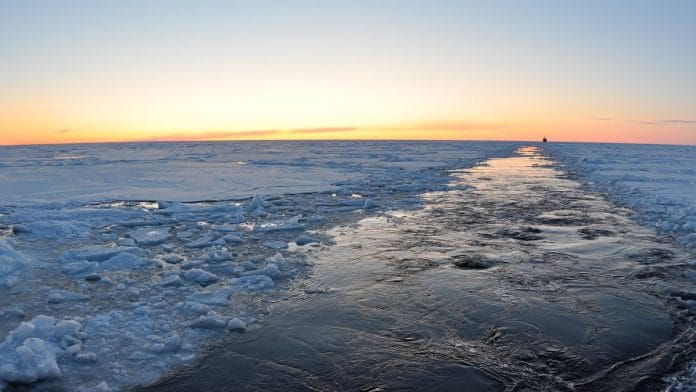Bengaluru: As the world continues to warm at unprecedented rates, the ability of the Arctic Ocean to absorb carbon dioxide is rapidly decreasing due to coastal erosion. Coupled with melting permafrost (ground that remains completely frozen — at zero degrees Celsius or less — for at least two years, and stores massive amounts of carbon), the Arctic Ocean is now likely releasing more carbon dioxide than it absorbs, a new study has found.
The study, conducted by European researchers, was published Tuesday in the journal Nature Climate Change.
The research identified multiple hotspots of excessive permafrost erosion posing greatest risk to humans, including in Alaska, Canada and Siberia. It further found that the changes will reduce the ocean’s ability to absorb carbon dioxide by a factor of up to two-three in the year 2100.
The study is also the first to include in its modelling the effect of organic matter, nutrients and soil entering into the ocean.
Also read: Scientists discover ‘dark oxygen’ produced on deep-ocean floor where the Sun don’t shine
Permafrost melting releases microbes into atmosphere
The paper is the latest to also show that the rate of permafrost melting has been accelerating over the past few decades.
As ice melts during summer, soil is exposed to air and water, leading to weathering and erosion along coastal regions. The melting of permafrost is of particular concern as darker soil absorbs more sunlight, as a result of which ancient microbes long frozen in ice get released into the atmosphere, and large amounts of carbon dioxide and methane escape. This leads to quickly worsening changes in the climate heating cycle.
The risk to the Arctic Ocean is worsened by what is known as the arctic amplification effect, where the poles warm faster than the rest of the planet. The Arctic Ocean is estimated to be warming at a rate that is four times that of the rest of the world. It is the most sensitive region on the planet to warming.
The two poles together are responsible for absorbing about 90 percent of all the carbon dioxide from the atmosphere into the ice.
Sea ice determines impact of coastal erosion
The team found that the reduction in absorption of carbon dioxide due to coastal erosion is equivalent to up to 15 percent of the total amount of carbon dioxide that would have been absorbed by the Arctic Ocean in the absence of coastal erosion. The paper states that the yearly increase in atmospheric carbon dioxide due to just Arctic coastal erosion is equivalent to about 10 percent of car emissions in Europe for a year.
The authors concluded that the biogeochemical feedback of coastal permafrost erosion due to climate change is dependent on sea ice.
The study found that sea ice protects coastal permafrost, and also determines the impact of coastal permafrost erosion. The more sea ice there is, the more carbon dioxide gets absorbed, preventing the gas from being absorbed by the oxygenated oceanic water.
They also found that seasonal variations occur drastically with sea ice, and as ice-free summers are expected in the near future, there could be large scale changes in climate patterns and impact on people.
(Edited by Radifah Kabir)






